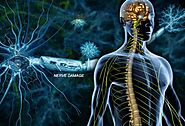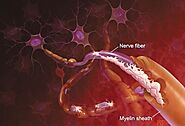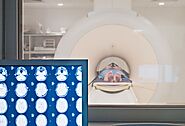-
About
- About Listly
- Community & Support
- Howto
- Chrome Extension
- Bookmarklet
- WordPress Plugin
- Listly Premium
- Privacy
- Terms
- DMCA Copyright
- © 2010-2025 Boomy Labs

Listly by Umbrella Health Care Systems
Multiple sclerosis (MS) is a potentially disabling disease of the brain and spinal cord (central nervous system).
In MS, the immune system attacks the protective sheath (myelin) that covers nerve fibers and causes communication problems between your brain and the rest of your body. Eventually, the disease can cause permanent damage or deterioration of the nerve fibers.
Signs and symptoms of MS vary widely between patients and depend on the location and severity of nerve fiber damage in the central nevous system. Some people with severe MS may lose the ability to walk independently or ambulate at all. Other individuals may experience long periods of remission without any new symptoms depending on the type of MS they have.
There's no cure for multiple sclerosis. However, there are treatments to help speed the recovery from attacks, modify the course of the disease and manage symptoms.
https://www.umbrellamd.com/e-visit

MS is a chronic disease that damages the nerves in the spinal cord and brain, as well as the optic nerves. Sclerosis means scarring, and people with MS develop multiple areas of scar tissue in response to the nerve damage. Depending on where the damage occurs, symptoms may include problems with muscle control, balance, vision, or speech.
https://www.umbrellamd.com/e-visit

Nerve damage can cause:

More than half of people with MS experience a vision problem called optic neuritis. This inflammation of the optic nerve may cause blurred vision, loss of color vision, eye pain, or blindness, usually in one eye. The problem is usually temporary and tends to improve within a few weeks. In many cases, vision problems are the first sign of MS.
https://www.umbrellamd.com/e-visit

Although less common than vision problems, some people with MS develop slurred speech. This happens when MS damages the nerves that carry speech signals from the brain. Some people also have trouble swallowing.
https://www.umbrellamd.com/e-visit

In people with MS, the body's own immune system attacks the tissue surrounding the nerve fibers in the brain, spinal cord, and optic nerves. This covering is made of a fatty substance called myelin. It insulates the nerves and helps them send electrical signals that control movement, speech, and other functions. When myelin is destroyed, scar tissue forms, and nerve messages are not transmitted properly.
https://www.umbrellamd.com/e-visit

The roots of MS remain mysterious, but doctors see some surprising trends. It's most common in regions far from the equator, including Scandinavia and other parts of Northern Europe. These areas get less sunlight, so some researchers believe that vitamin D (the "sunshine vitamin") may be involved. Research suggests a possible link between vitamin D deficiency and autoimmune disorders, but studies are ongoing. Genetics appear to play a role, as well.
https://www.umbrellamd.com/e-visit

Tests are often used, along with a medical history and neurological exam, to diagnose MS and rule out other causes of symptoms. More than 90% of people with MS have scar tissue that shows up on an MRI scan. A spinal tap can check for abnormalities in the fluid that bathes the brain and spinal cord. Tests to look at electrical activity of nerves can also help with diagnosis. Lab tests can help rule out other autoimmune conditions or infections such as HIV or Lyme disease.
https://www.umbrellamd.com/e-visit

While there is no cure for MS, there are "disease-modifying drugs" that can reduce the frequency and severity of MS attacks. Use can result in less damage to the brain and spinal cord over time, slowing the progression of disability. When an attack does occur, high-dose corticosteroids can help cut it short. Many drugs are also available to manage troubling MS symptoms, such as muscle spasms, incontinence, and pain.
https://www.umbrellamd.com/e-visit

The vast majority of people with MS are able to continue walking, though many benefit from some type of assistive device. Orthotic shoe inserts or leg braces can help increase stability. When one leg is stronger than the other, a cane can help. People with significant problems with their legs may need to use a walker. And a wheelchair or scooter may be best for those who are very unsteady or tire easily.
https://www.umbrellamd.com/e-visit

Exercise can ease stiffness, fatigue, and other symptoms of MS. But overdoing it could make things worse. It's best to start slowly. Try exercising for 10 minutes at a time, then gradually working your way up to a longer session. Before you begin, check with your doctor about what type of activity and level of intensity would be most appropriate. A few possibilities include water aerobics, swimming, tai chi, and yoga.
https://www.umbrellamd.com/e-visit

Umbrella Health Care Systems provide complete solution for health related problems.
https://www.umbrellamd.com/